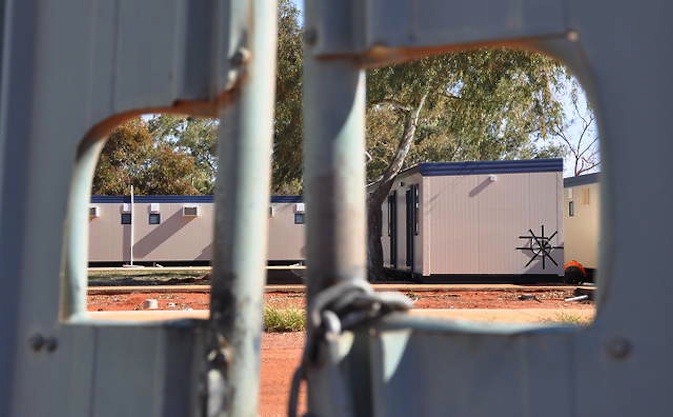The Australian Human Rights Commission is currently holding an inquiry into children in immigration detention, looking at the short- and long-term impact detention has on children.
The inquiry also aims to investigate what has changed in the 10 years since the Commission released A last resort? the report of the National Inquiry into Children in Immigration Detention (2004).
As part of their inquiry, the Commission visited immigration detention centres on Christmas Island, where Commission president, Professor Gillian Triggs, and medical consultants spent a week assessing facilities and interviewing 230 families about their experiences in detention.
“This inquiry will investigate the impact of immigration detention on the health, wellbeing and development of these children,” said Commission president, Professor Gillian Triggs. “These are children that, among other things, have been denied freedom of movement, many of whom are spending important developmental years of their lives living behind wire in highly stressful environments.”
The Commission’s 2004 report found the mandatory immigration detention of children was fundamentally inconsistent with Australia’s international human rights obligations and that detention for long periods created a high risk of serious mental harm. Back then, the number of children in immigration detention was more than 700. Today there are more than 1,100 in Australian and offshore processing centres.
Australia’s detention regime, particularly when it comes to the detention of children, has repeatedly come under fire from human rights activists and the United Nations guidelines surrounding the rights of the child. In April this year, ABC’s Fact Check found that the Commission was correct in its claim that Australia’s practice of indefinite detention for children, which averages around eight months, is in breach of international law that states that children should be detained for no longer than absolutely necessary.
The inquiry aims to look at the impact of immigration detention on children, and the Commission would hear submissions from people who have had direct experience of detention, including:
- people who live or have lived in immigration detention facilities as children under the age of 18 years
- parents and carers of children in immigration detention facilities
- professionals who have experience and knowledge about the impact of immigration detention on children.
For more info on the Australian Human Rights Commission’s work for asylum seekers and refugees, visit humanrights.gov.au, or to make a submission to the inquiry, go to the submissions page. Submissions will be accepted until 30 May, 2014.



No Comments Yet